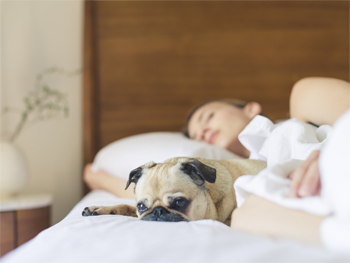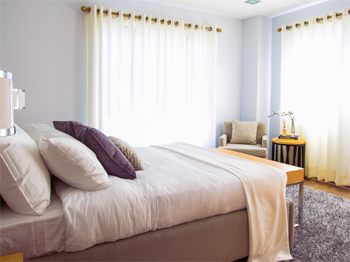Clean Sleep Routine

Is Clean Sleep the New Clean Eating?
So, there's sleep and then there's clean sleep. Not sure what the difference is? On first glance, nothing much.
The first is what we've all been doing, generally during the night hours, for the past millennia or so. The second is a term that's recently became a byword for a better kind of sleep. The kind of sleep that's unlike the one most of us get every night, but one that we should be aiming for if we want to live a healthier, more productive life."
Gwyneth Paltrow kicked off the whole craze in 2016, when she explained that her lifestyle was based around the idea of not just clean eating, but clean sleeping. In other words, getting good quality sleep.
She explained how she believes sleep should be everyone's first priority, even before healthy eating and exercise, and told how she aims to get at least seven or eight hours sleep a night and 'ideally even ten' on occasion.
Sleep expert Cheryl Fingleson agrees that ensuring our sleep is of good quality is vital for health and well being. Call it good sleep, call it clean sleep - just make sure you're getting it!
'Clean sleep is all about making sure you get enough good sleep to wake feeling rested and refreshed. Do this and it'll have a knock on affect to everything in your life: your metabolism, memory, cognitive function, mood and physical well being.'
"Ensuring we get the right amount of REM (rapid eye movement - light sleep) and non-REM (non rapid eye movement) sleep is vital. This kind of sleep isn't one that's interrupted. It's not a sleep that leaves us groggy and tired despite having been in bed for seven or so hours."
However, Cheryl's got news for Gwyneth: sleeping ten hours isn't always a good thing.
'Sleep experts have done a lot of research on this and there's evidence to show that getting too much sleep can actually backfire. Depending on our age, adults need between seven and nine hours of sleep a night. More than that can actually lead to fragmented sleep when you wake up a lot.'
But clean sleep isn't just about what happens after you've snuggled up under your doona and close your eyes. What really ensures clean sleep is what we all do in the hours leading up to that vital shut-eye time.
If you want to ensure optimum health and well being, try following Cheryl's easy seven steps to clean sleeping.
 Stick to a clean sleep routine:
Stick to a clean sleep routine:
Go to bed and get up at the same time every day. Eat breakfast within thirty minutes of getting up.
Exercise regularly to reset your circadian rhythm and ensure you have some time out in natural daylight every day.
Prepare for sleep. Try meditation, soft music or gentle massage before bed. Don't eat too much or too little in the hours before you go to sleep.
Detox your sleep space. Make your bedroom your peaceful sanctuary with calm neutral colouring, comfortable, no electronics, low-toxin bedding and low lighting. Tidy it and put away clutter before bed so there's nothing distracting you.
Practise clean viewing and have an electronic sunset. After that time - ideally one to two hours before bed - don't look at any screens, big or small. And never double screen - watching television while also using a phone or tablet.
Instead, pick up a book and read to help switch off your brain before bed.
Don't stress. Not everyone can practise clean sleeping every night. Aim to achieve it around 75% of the time. You'll know when you're getting your body's optimum amount of sleep when you get into a rhythm where you go to sleep and wake naturally.
MORE





